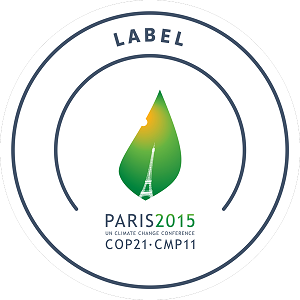Last week, I spend 3 days at
OuiShare Fest 2015 in Paris. The third annual gathering of its kind, it brings together players of the Collaborative Economy movement. The event was subtitled 'Lost in transition?' and did the important work of evaluating where the different strands of this new economy actually stand.
It was my first contact with OuiShare and many of the key topics. I have to say I was really impressed by the three days. The location at Cabaret Sauvage was the perfect setting to both attend talks and constantly connect with people in between. I cannot recall a conference where attendees where in fact this collaborative and it was easy to make connections and learn from all the folks there. A warm
Thanks to the OuiShare team for putting all this together.
The conference tracks explored the key topics of Collaborative Consumption (fka 'sharing stuff'), Crowdfunding (and cryptoequity), OpenSource and the commons, Makers and distributed manufacturing, future of work, horizontal governance, etc. While all tracks were pretty well curated, I was particularly interested in Sharing, Makers, Funding and OpenSource business.
Here are some notes, in no particular order:
1.
It is all about the BlockChain. If you haven't geeked up on bitcoin, etherium, smart contracts and the blockchain, do so now (start
here and
here!). The promise of a trustless system to store any data is huge in a decentralized world. In fact,
Lisa Gansky of MeshLabs referred to the blockchain as the next huge transformative force of the digital age. Personally, I still struggle with some technical scalability aspects of the hash game of the blockchain, but smart minds are fully enchanted so I'll go with it for now.
2.
It is all about access capacity:
Robin Chase's new book '
Peers Inc' lays out the concept where we can tap into the excess capacity by peers networking through professional platforms (the Inc). This is our path to higher utilization and a shot at a sustainable economic activity. I very much liked her approach and recommend the book.
3.
Where is the money? There is an inherent conflict with the sharing economy's lateral approach and the predominant innovation funding model of VCs. While there are many crowdfunding platforms supporting many efforts, the largest players in the space are still traditionally backed startups with massive evaluations (the 1% owns the sharing economy, like it or not). A new approach pioneered by thinkers like Matan Field of
Backfeed (and LaZooz) or
Swarm or
Koinify are cryptocurrencies and a decentralized participation model of cryptoequity. Very interesting trend there for decentralized collaborative organisations (DCOs). Essentially any contribution to an organisation can afford a share in the virtual worth in form of tokens, as long as the group itself defines the value.
4.
The collaborative economy is spreading: Jeremy Owyang of
Crowdcompanies presented his updated version of the '
honeycomb 2.0' to map out the rapidly expanding scope of how access capacity is used by sharing. Existing companies will quickly need to consider a strategy to play in this interconnected world as business moves laterally.
5.
Makers between tinkerers and innovators: The maker movement sometimes gets trapped in the chasm between the personal creativity of FabLabs and the commercial interest in crowd innovation. Existing players try to tap into the maker movement with co-owned maker spaces, but there is no seamless and financially viable paths yet to go from individual creator to a scalable business. Both funding and intellectual property rights pose hurdles here.
6.
We need to change our mindset: Apart from all the exciting possibilities of the new collaborative economy, there is a deep rooted understanding that we as individuals need to rewrite the narrative about our most fundamental beliefs. We are not simply consumers, we are creators, community members, collaborators and even giver of gifts - we have just forgotten it. Unless the mental process of our daily behavior is reformed to include the broader 'We', a transition to a robust new model seems implausible. This dimension must not be forgotten and might prove the hardest of them all.
See much more on OSFESt at #osfest15. Looking forward to next year already...





